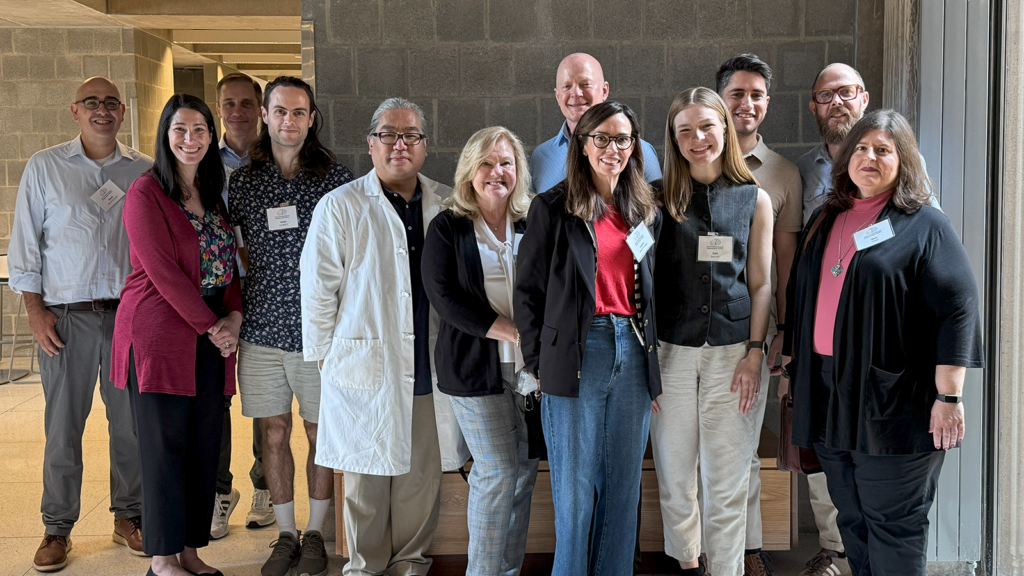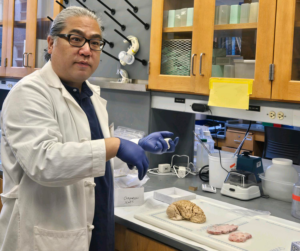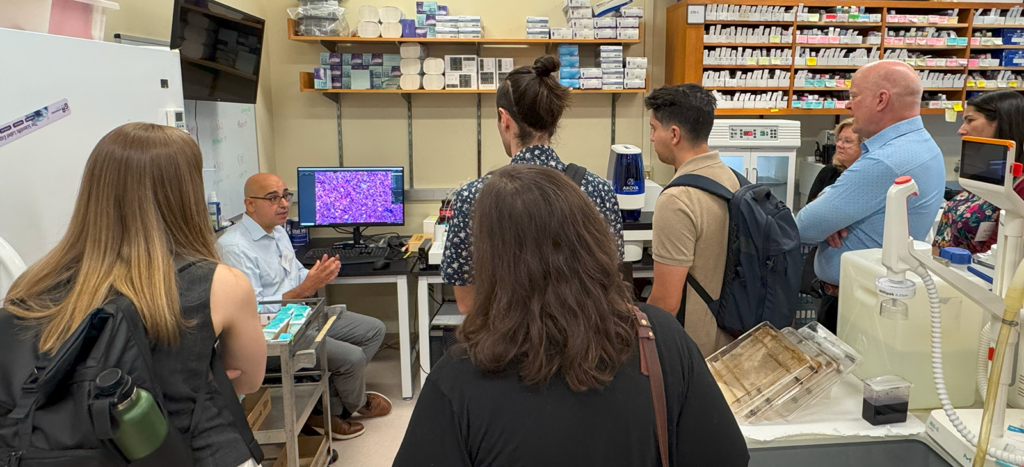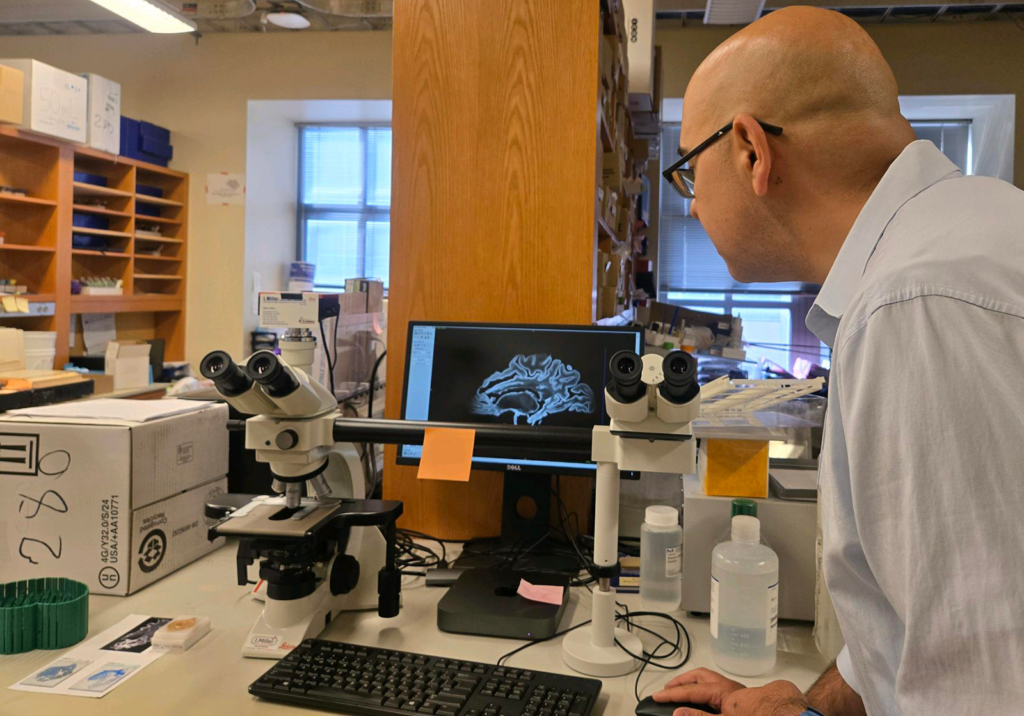PRESS & NEWS
Inside the Penn FTD Center

The FTD Disorders Registry joined FTD community advocates for a behind-the-scenes tour of the Penn FTD Center,
The FTD Disorders Registry joined a group of dedicated community advocates on an inspiring and informative tour of the Penn FTD Center in Philadelphia, PA this week. The visit provided an inside look at the groundbreaking work happening in research, patient care, and the renowned Penn Brain Bank.
A Hub of Scientific Discovery and Compassionate Care
The Penn FTD Center is one of the nation’s leading institutions focused on frontotemporal degeneration, offering comprehensive clinical care while also driving innovative research. The team includes experts in neuropsychology, neuroimaging, clinical care, biofluid markers, cognitive neuroscience, and genetic counseling who all work collaboratively to support patients and families while advancing scientific understanding of this complex group of disorders.
Honoring the Gift of Brain Donation
 Our day began with Dr. Edward Lee in the Penn Brain Bank, which plays a vital role in the Penn FTD Center’s research. There, we learned about the meticulous process of receiving, preserving, and preparing donated brain tissue for scientific study.
Our day began with Dr. Edward Lee in the Penn Brain Bank, which plays a vital role in the Penn FTD Center’s research. There, we learned about the meticulous process of receiving, preserving, and preparing donated brain tissue for scientific study.
Brain donation is one of the most meaningful gifts a person or family can make to help future generations. It creates a lasting impact that helps researchers better understand disease mechanisms and develop more accurate diagnoses and effective therapies. We were privileged to see that impact firsthand.
Where Discovery Happens: The Research Lab
From there, we visited the research lab, where Dr. David Irwin demonstrated how tissue samples and data are transformed into insights. The team is investigating how FTD disorders progress, how to differentiate subtypes earlier, and how we might track and slow FTD disorders over time. Importantly, many of these studies rely on the involvement of persons diagnosed, care partners, and families – the people who contribute data, biosamples, and their lived experience to help answer key scientific questions.
Dr. Corey McMillan walked us through some of the state-of-the-art tools the Penn FTD Center is using in their work including an Akoya Phenocycler, a 7T High Resolution MRI (one of only ten in the United States), and a Visium CytaAssist. They are also the only location in the world using Cryo-Electron Microscopy to study FTD disorders.
The team highlighted the importance of collaboration across institutions and disciplines. FTD disorders are complex, but the science is advancing rapidly, propelled by the passion of researchers, the generosity of research participants, and the commitment of the community.
Why Research Matters
Frontotemporal degeneration is still widely misunderstood, often misdiagnosed, and always devastating. Supporting FTD disorders research is more urgent than ever. Continued progress depends on sustained investment in this important work. Without adequate funding, the momentum we have built in understanding FTD disorders could stall just when breakthroughs are within reach.
Each study, each biosample, each person who joins the Registry and participates in research brings us closer to treatments and, ultimately, a cure.
Our visit to the Penn FTD Center reminded us that science is not separate from humanity; it is fueled by it. To those impacted by FTD: your experience, your participation, your advocacy matter. Numbers have power, and together with institutions like the Penn FTD Center, we are advancing the science of FTD disorders.
Interested in participating in FTD disorders research?
At the FTD Disorders Registry, our mission is to empower people impacted by FTD disorders to take part in research. It was an honor to join with advocates from across the country who took the opportunity to ask questions and reflect on how they can use their voices to accelerate progress.
To join the FTD Disorders Registry and learn how you can be part of studies that are advancing understanding and treatment, visit https://ftdregistry.org/why-join/.
Together we can find a cure for ftd
The FTD Disorders Registry is a powerful tool in the movement to create therapies and find a cure. Together we can help change the course of the disease and put an end to FTD.
Your privacy is important! We promise to protect it. We will not share your contact information.





